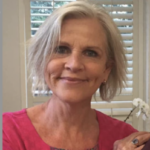Imagine if we took the psychological health of our nation seriously. Not the health of individual citizens — though that is vital — but rather if we took the mental health of the nation seriously. What would it look like and is it even possible to do that, to understand that a nation has a psyche that can be healed and hurt? And if so, how would we address ourselves and each other as we lie down on the analyst’s couch?
Very few countries even ask such questions anymore because the mental well-being of the nation as a separate thing to its people is a given. The literature on this is exhaustive, unless you are looking for Australian authors. Then, not so much.
It is time to change this lack of literacy when it comes to understanding ourselves, our psyches and the soul of the nation. With a federal campaign being unleashed, the timing is critical because we are about to have the best spinmeisters in Australia drawing straight from our shared unconsciousness as they snatch our attention, our loyalty and our votes. And we come to this as lambs to the slaughter, ignorant of our deepest desires and fears. This ignorance has real world consequences and abuses.
Three instances come to mind. The first in many ways explains the second, and the third is an extremely expensive standalone shared psychotic delusion.
Earlier this week The Guardian reported that Home Affairs had warned the government in November 2023 that its perceived one-sidedness in support of Israel during the Gaza conflict left Palestinian and Muslim Australians feeling “extremely angry” and “betrayed”. The department confirmed it was concerned about “social cohesion”.
Social cohesion is an unfortunate and limiting word to use for what various members of the national community are dealing with. It is word that obscures more than it illuminates.
Imagine if we changed the term “social cohesion” for “hurt”. Imagine if that note read; the perceived one-sidedness in support of Israel during the Gaza conflict left Palestinian and Muslim Australians feeling ‘hurt’, ‘unheard’ and ‘uncared for’. That would get closer to the complicated truth.
The department recognised community members were traumatised by the conflict, distressed about the welfare of those in Gaza, and felt that “statements from senior leaders are undoing previous progress on improving social cohesion”. Hurt gets us a lot closer to the facts.
So how did the government respond to this cry for help? Did the minister for Home Affairs, or even the prime minister reassure Palestinian and Muslim Australians that he understood their grief and trauma, that they were heard and seen; that he would do all he could to give them the support they needed because what they were dealing with was almost unbearable, but that together we could bear this atrocity?
No. Neither the minister nor prime minister made any attempt to reassure, to hear or to understand the depths of the pain being experienced by members of our community. And perhaps part of the reason for that is because Muslim Australians occupy a complex position in contemporary Australia. Muslim Australians have spent much of the last couple of decades carrying a great deal of non-Muslim Australians’ abject psychic material – its anxiety, its need for a scapegoat and its fear of the Other. Who can forget the so-called War of Terror, the “terrorists” John Howard’s Government assured us were coming to Australia via boat? And who can forget the Cronulla Riots?
That’s why understanding the nature of the psycho-affective terrain from which these impulses and policies emanate from is vital to avoid this kind of distortion.
The government did not reassure the community, rather it tipped in some cash. Then it added insult to injury by ensuring much of the cash was re-diverted to mainstream media organisation on the suggestion of the communications department, not the Palestinian Australian community.
The president of the Australia Palestine Advocacy Network, Nasser Mashni, revealed the Palestinian community had been pleading for funds to “address the profound trauma, alienation and anti-Palestinian racism our community is experiencing as a result of this ongoing Nakba”. Mashni added, “It’s incredibly frustrating to learn that a government department asked that funding go to media outlets, despite community volunteers repeatedly informing them of the severe emotional, mental, and financial toll they were enduring while trying to support their families and communities through these horrific, life-and-death circumstances.”
Sigmund Freud described some of the characteristics of the melancholic person/nation as characterised by a narcissistic, lifeless and shallow orientation but warned the state also carries within itself a sadism that seeks expression and outlet.
The second episode is the discovery of the caravan packed with explosives. In January, a caravan containing explosives was discovered in Dural on the outskirts of Sydney. Inside the caravan were threats directed towards the Jewish community. This was discovered around the same time as 14 other antisemitic attacks across Sydney’s east.
There was obviously no time to wait. This was literally the good people versus the bad people, and we knew what to do. Peter Dutton assured everyone there was good reason to be terrified, saying, the caravan was “believed to be the biggest planned terrorist attack” in Australia’s history. Chris Minns chimed in describing the discovery as, a potential mass casualty event.
Except they were wrong. This is why the psychological state of the community matters; these political observations fell on fertile fields of fear. Much of Australia is caught in the psychologically primitive world psychoanalyst Melanie Klein described as the paranoid-schizoid position. It is when the infant/nation attempts to manage the complexity of life by splitting its world into all-good and all-bad.
Of course, it fails to keep us safe and fails to manage our fear because it is not true. There was no real threat, just some smart criminals redirecting the police and getting a better sentence.
If we took our psychological state seriously, we would know we were scared, that we were therefore vulnerable to the siren song of the strongman; that we were prone to splitting and that we needed some soothing reassurance, some containment and a big dose of love. Here I am again reminded of Freud’s description of the melancholic with its stuck, narcissistic state full of profoundly painful dejection, and lack of love.
We could have responded to these events in many ways. But our collective psychological state determined our responses – they always will, until we take them seriously and address them with the care and seriousness they deserve.
Finally, to a shared psychotic episode called AUKUS. This thing really is closer to an imaginary friend (paracosm) than it is a nuclear submarine. That is, it stands to offer reassurance of defence from our two big friends, the US and UK, but no one believes it will happen. We all know it is not a real thing in fact, just a feeling. Very few are willing to say AUKUS is just a figment of our collective imagination. But it is.
Right now, the world is analysing President Trump every day to try to understand how one man could be so destructive. But to focus on the individual is to miss the collective. Trump was elected by the American people. It is the American people that need to be understood. Likewise, we can often focus on political leaders to understand how things can go so terribly wrong, but in Australia it is us that put them there. It is time to check the psychological state of the nation and perhaps then we could have difficult conversations about all the things that frighten us. We could work through, rather than acting out.
The views expressed are solely those of the author and may or may not reflect those of Pearls and Irritations.
Julie Macken has worked for many years as a senior Writer with The Australian Financial Review. She was a consultant to then-shadow minister for the Environment, Peter Garrett before managing the traditional media for Greenpeace Australia Pacific. She was Director of Communications for the NSW Greens successful 2015 State election campaign and currently works as a Justice and Peace Facilitator at the Justice and Peace Office of the Sydney Archdiocese. She has just finished her PhD into the question of why the Australian state treats asylum seekers as it does.

